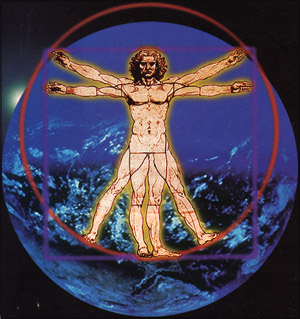Knowledge workers and the knowledge economy
Dr. K. Kuhathasan CEO, Cenlead
People in your organisation are the creators and innovators of new
knowledge.
Peter Drucker introduced the concept of “knowledge worker” and the
“knowledge economy” to the management world.
According to Peter Drucker “The key to maintaining leadership in the
economy and the technologies that are emerging is likely to be the
social position of the knowledge professionals and social acceptance of
their values.
 Today,
however, we are trying to straddle the fence-to maintain the traditional
mind-set, in which capital is the key resource and the financier is the
boss, while bribing knowledge workers to be content to remain employees
by giving them bonuses and stock option. Today,
however, we are trying to straddle the fence-to maintain the traditional
mind-set, in which capital is the key resource and the financier is the
boss, while bribing knowledge workers to be content to remain employees
by giving them bonuses and stock option.
But this, if it can work at all, can work only as long as the
emerging industries enjoy a stock-market boom, as did the internet
companies.”
“The management of knowledge workers is a “marketing job”. And in
marketing one does not begin with the question. “What do we want?” One
begins with the questions. “What does the other party want? What are its
values? What are its goals? What does it consider results?”
What motivates knowledge workers is what motivates volunteers.
Volunteers have to get more satisfaction from their work than paid
employees, precisely because they don’t get a paycheck”. “In today’s
society and organisations, people work increasingly with knowledge
rather than with skills”.
While defining knowledge workers,
Peter Drucker says:
1. Knowledge-worker productivity demands that we ask the question:
“What is the task?”
2. It demands that we impose the responsibility for their
productivity on the individual knowledge workers themselves. Knowledge
workers have to manage themselves. They have to have autonomy.
3. Continuing innovation has to be part of the work, the task, and
the responsibility of knowledge workers.
4. Knowledge work requires continuous learning on the part of the
knowledge worker, but equally continuous teaching on the apart of the
knowledge worker.
5. Productivity of the knowledge worker is not-at lease not
primarily-a matter of the quantity of output. Quality is at least as
important.
6. Finally, knowledge-worker productivity requires that the knowledge
worker be both seen and treated as an “asset” rather than a “cost”. It
requires that knowledge workers want to work for the organisation in
preference to all other opportunities.
Knowledge workers must have continuous learning built into their
tasks. And a knowledge organisation has to be both a learning
organisation and a teaching organisation.
Knowledge today, in all areas, changes so fast that knowledge workers
become obsolete pretty soon unless they build continuous learning into
their work. This means that knowledge workers are well advised to sit
down and answer two questions.
1. What do I need to learn to keep abreast of the knowledge I am
being paid to know?
2. And what do my associates have to know and understand about my
knowledge area and about what it can and should contribute to the
organisations and to their own work?
Control model Stephen Covey Says:
Managers today continue to apply the control model to knowledge
workers. Because many in positions of authority don’t see the true worth
and potential of their people and don’t possess a complete, accurate
understanding of human nature, they manage people as they do things. The
result? People become alienated, work becomes depersonalised, and
low-trust, litigious cultures result.”
“Leadership in the knowledge worker age will be characterised by
those who find their own voice and who inspire others to find theirs.
It’s leadership where people communicate to others their worth and
potential so clearly they’ll come to see it in themselves.”
Knowledge and skill
In today’s society and organisations, people work increasingly with
knowledge, rather than with skill. Knowledge and skill differ in a
fundamental characteristic-skills change very, very slowly.
Knowledge however, changes itself. It makes itself obsolete. and very
rapidly.
A knowledge worker becomes obsolescent if he or she does not follow
continuous training activities.
This not only means that the equipment of learning, of knowledge of
skill, of experience that one acquires early is not sufficient for our
present life time and working time.
They become different persons with different needs, different
abilities, different perspectives, and therefore, with a need to
“reinvent themselves”.
Unlike in the past the needs of
knowledge workers of today are:
1. Feeling of accomplishment resulting from work assignment.
2. Opportunity for advancement based on quality of work performance.
3. Opportunity to exercise personal initiative in assignment.
4. Being assigned challenging work.
5. Recognition for accomplishment and technical success
6. Desire for excellence in work assignment
7. Opportunity to be creative and innovative
8. Having major responsibility for a project.
Under the circumstances, todays organisations must:
1. Be educated to staying at the cutting edge of technology.
2. Innovation is enthusiastically encouraged by the organisation.
3. The organisation expects continuing technical excellence and
competence.
4. The organisation is a leader in technical development.
5. The organisation has a progressive atmosphere.
6. The organisation must be better technically that its competitor.
In the knowledge worker age, people in your organisation must create
and innovate, new knowledge, new information, new services, new
processes, new techniques and new products for the benefit of internal
and external customers. |

